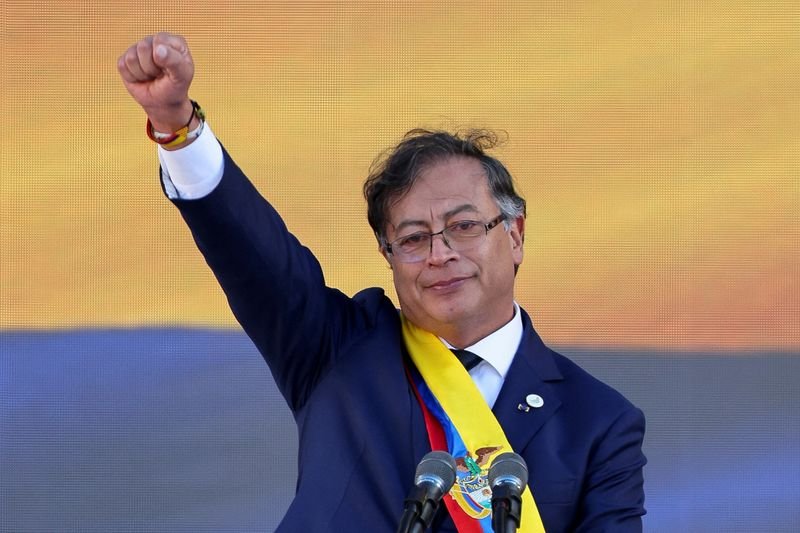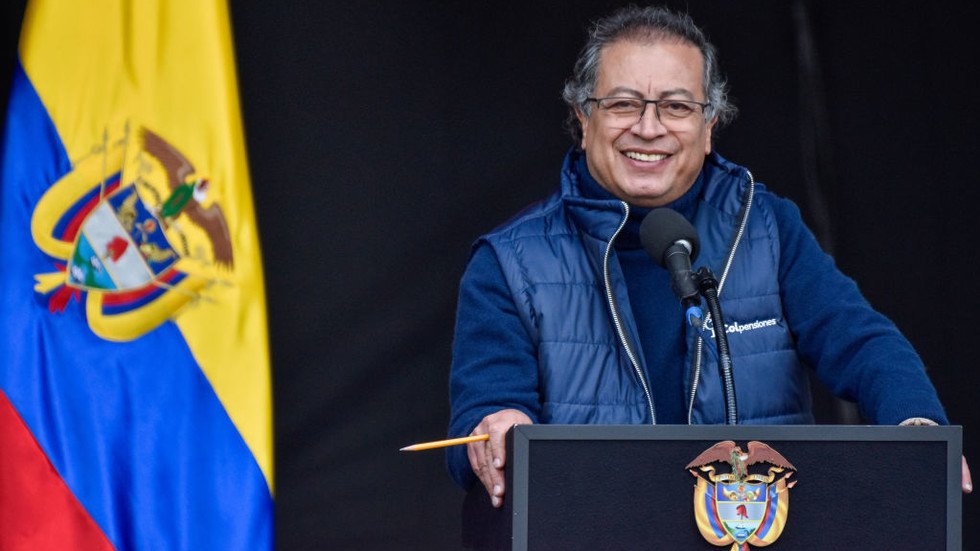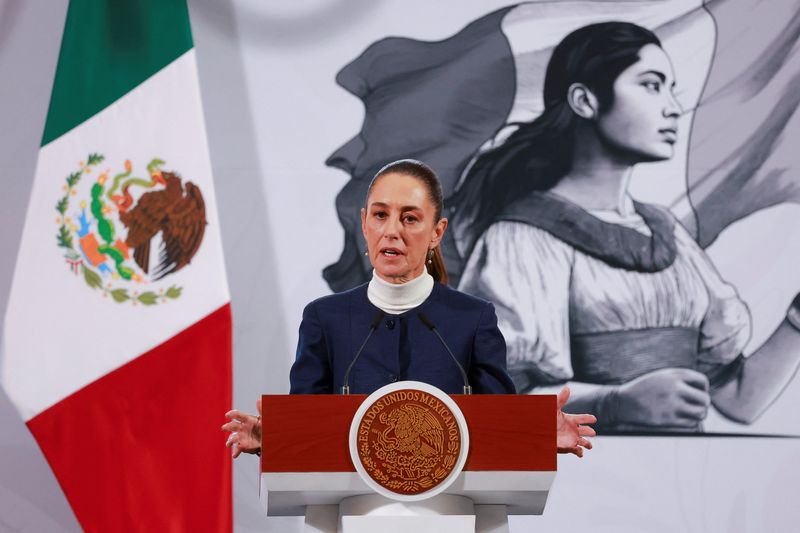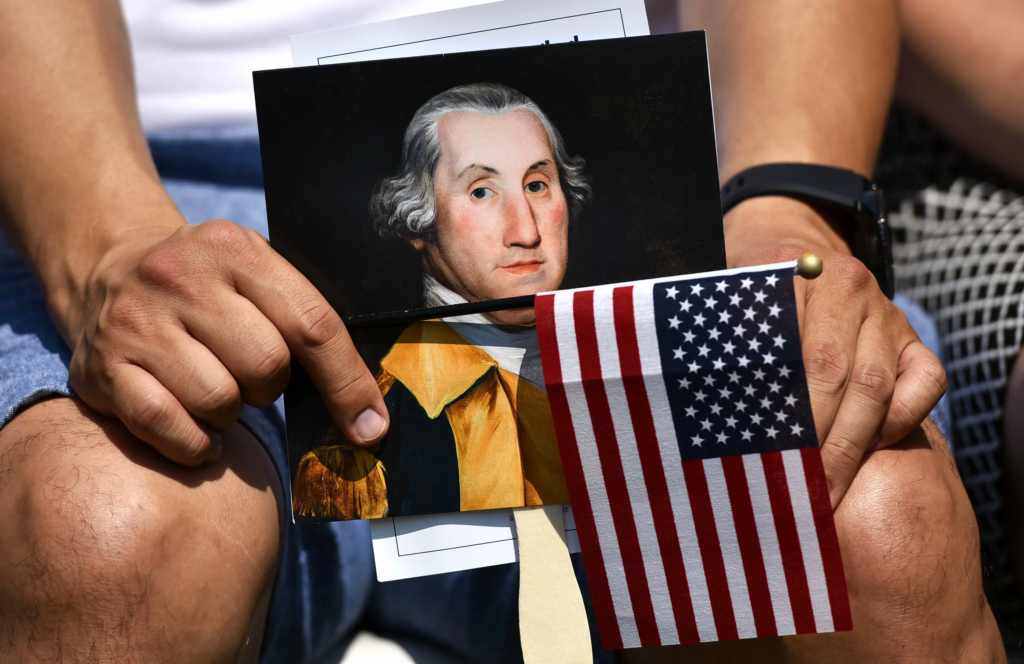In his early days back in office, Donald Trump has quickly demonstrated that his earlier rhetoric of isolationism was nothing more than a facade. His recent statements about conquering Greenland, reclaiming the Panama Canal, and even invading Mexico have revealed a more aggressive stance on U.S. hegemony. This shift marks a departure from the subtleties of diplomatic maneuvering in favor of a more blatant, interventionist approach. However, his recent miscalculations in Latin America suggest that he may have underestimated the resolve of regional leaders and the limits of U.S. influence.
A Public Clash with Colombia
One of Trump’s first diplomatic confrontations came in the form of a tense exchange with Colombia’s leftist president, Gustavo Petro. The dispute erupted when Petro refused to accept a U.S. deportation flight carrying shackled Colombian migrants. While much of the U.S. media quickly framed the incident as a victory for Trump, the reality proved otherwise. In a rare rebuke, the Trump administration was forced to reverse course, ultimately allowing the deported Colombians to return home with dignity aboard the Colombian presidential plane.
The arrival of the migrants in Bogotá became a highly publicized moment, exposing the cruelty of Trump’s immigration policies.
One woman, speaking to journalists on the tarmac, described how she and her child were robbed by human traffickers before being detained and mistreated by U.S. immigration authorities. Another deportee, José Erick, shared his story of seeking asylum to escape violence in Colombia—a crisis fueled in part by the flow of U.S.-manufactured weapons into the region. When asked to respond to Trump’s claims that the deportees were criminals, he bluntly stated, “I’m a mechatronic engineer. Trump needs better advice on who was on that plane.”
This high-profile moment served as a public relations disaster for Trump, revealing the brutality of his policies not just to U.S. audiences but to the entire Latin American region. For Petro, the episode was a diplomatic victory—one that underscored his willingness to push back against Washington’s overreach.


A Regional Response to U.S. Aggression
Petro’s handling of the deportation crisis also laid the groundwork for broader Latin American resistance to Trump’s policies. In response to Trump’s threats—including potential tariffs—Honduran President Xiomara Castro called for an emergency meeting of the Community of Latin American and Caribbean States (CELAC). Although the meeting was ultimately canceled following the resolution of the Colombia dispute, the move demonstrated a growing willingness among regional leaders to coordinate against U.S. pressure.
Meanwhile, Mexico’s left-wing president, Claudia Sheinbaum, took a more satirical approach to Trump’s provocations. After Trump suggested renaming the Gulf of Mexico to the “Gulf of America,” Sheinbaum responded by proposing that the entire North American continent be renamed “América Mexicana,” citing a colonial-era Spanish map as justification. Mexico’s diplomatic pushback extended beyond rhetoric. When Google briefly recognized Trump’s proposed name change, the Mexican Foreign Ministry lodged a formal complaint, arguing that such a move violated international law. While Mexico has remained diplomatic regarding U.S. deportation flights, it retains significant leverage over Washington, including the potential to deny U.S. flights access to Mexican airspace—an action that would significantly raise the cost of Trump’s deportation operations.

Trump’s Missteps and the Alienation of Allies
Trump’s early moves have not only angered left-leaning leaders but have also put pressure on some of the United States’ traditional allies. In Panama, center-right President José Raúl Mulino was forced into a defensive position after Trump falsely claimed that the Panama Canal was under Chinese control and that the U.S. might need to “take back” the waterway. Mulino swiftly denounced Trump’s remarks, emphasizing that they violated the Torrijos-Carter Treaties, which returned the canal to Panama in 1999.
Even within conservative circles, Trump’s rhetoric is proving to be destabilizing. While right-wing leaders such as El Salvador’s Nayib Bukele and Argentina’s Javier Milei remain aligned with Trump, others may reconsider their stance if his administration continues to treat Latin America as a subordinate region rather than a coalition of sovereign nations.

Latin America’s Shifting Alliances
Trump’s adversarial posture has accelerated a geopolitical shift already underway in Latin America. Many governments in the region are deepening ties with China, Russia, and the European Union as they seek to counterbalance U.S. influence. While a unified Latin American front remains unlikely, Trump’s actions are making regional cohesion more plausible than ever before.
Latin American integration has long been stifled by ideological divisions, but Trump’s aggressive policies may paradoxically create common ground among leftist and moderate leaders. The resurgence of CELAC and increasing discussions around economic independence from Washington reflect a broader effort to reduce dependency on U.S. markets and institutions.
Even if future administrations in Washington attempt to reset relations, the damage done by Trump’s early diplomatic miscalculations will not be easily reversed. The memories of humiliation and coercion will linger, making it more difficult for the U.S. to maintain its traditional dominance over the region.
The Limits of U.S. Power
Donald Trump’s return to power has been marked by aggressive rhetoric and heavy-handed policies toward Latin America. However, his early blunders reveal the limits of U.S. hegemony in the region. Rather than solidifying control, his administration’s approach has fueled resentment, emboldened regional leaders to push back, and created opportunities for alternative alliances.
The prospect of a more unified Latin American resistance to U.S. influence remains uncertain, but Trump’s miscalculations have made it far more conceivable. As Washington continues to underestimate the agency of Latin American nations, it may soon find that the days of unquestioned dominance are coming to an end.


